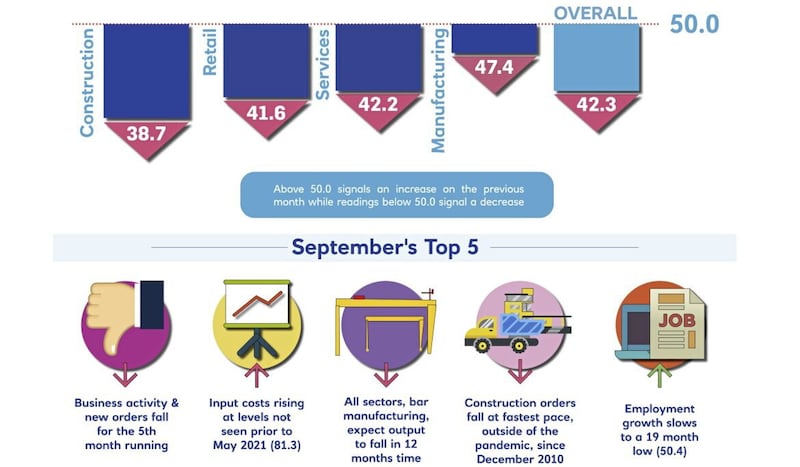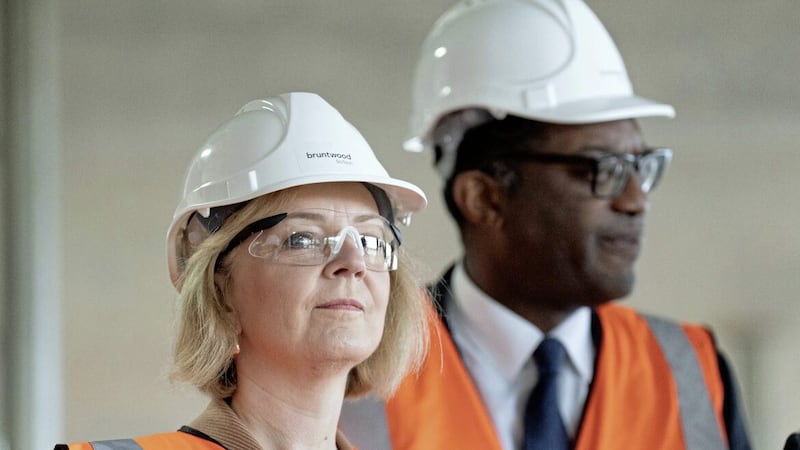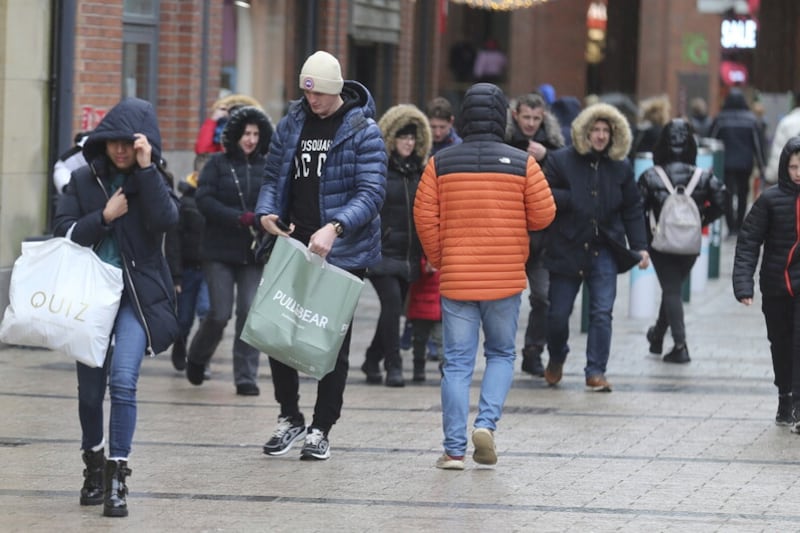NORTHERN Ireland’s private sector ended the third quarter of 2022 in deep contraction territory, according to a new report from Ulster Bank.
The lender’s monthly purchasing managers index (PMI) showed a sharp and accelerated decline in output during September.
It was the fifth successive month of declining output.
Based on the experience of 200 private sector businesses across the construction, manufacturing, retail and services sectors, the survey is considered a reliable indicator of how the economy is performing.
Northern Ireland firms see sharper fall in activity in September
— UlsterBank Economics (@UB_Economics) October 10, 2022
The latest PMI report saw the third quarter of 2022 end with the NI private sector remaining deep inside contraction territory.@Ramseconomics explains more
➡️➡️ https://t.co/jUlAgmRnLz pic.twitter.com/gWzU0CNSQD
Ulster Bank’s chief economist Richard Ramsey said the feedback for the latest PMI was conducted before Kwasi Kwarteng’s controversial ‘mini budget’ on September 23, adding that it “doesn’t bode well for the rest of the year”.
The official measure of the north’s economy, the Northern Ireland Composite Economic Index last month showed the economy was in decline during the second quarter.
Two successive quarters of decline would mean the economy is in a technical recession.
Ulster Bank’s latest PMI suggests that will be the likely outcome.
The north’s construction sector reported the steepest decline in September, with retail and services not far behind.
Manufacturing continued to be the strongest performing sector, but still contracted last month, according to the PMI.

Rates of decline in output and new orders accelerated. And while employment continued to increase, that rise was the weakest in 19 months.
The report suggested that cost inflation for businesses rose substantially in September.
Richard Ramsey said while ‘going for growth’ is the UK Chancellor’s approach to the Truss era, contraction was the theme of September’s PMI.
“Survey respondents cited deteriorating economic conditions, falling consumer confidence and rising prices as explanatory factors behind the continuing decline.
“Input costs continued to rise at a substantial rate and are at levels not seen prior to May 2021. Services firms reported the sharpest increases in their cost base, with wages and energy costs now increasingly at the forefront of inflationary pressures
And while the private sector appears to be in decline, the economist said the slowdown in hiring among firms is more often a case of difficulties finding suitable staff rather than just reflective of falling demand.
“However, the expected further reductions in business activity will no doubt weigh more on hiring intentions in the months ahead,” he added.
Mr Ramsey said the fourth quarter has started in an atmosphere of heightened uncertainty across both financial markets and politics.
“Firms may be relieved to see energy cost pressures easing, accompanied by much needed government support.
“But borrowing costs have now moved rapidly in the opposite direction.
“It’s hard to see the Chancellor’s much desired growth coming any time soon.”








